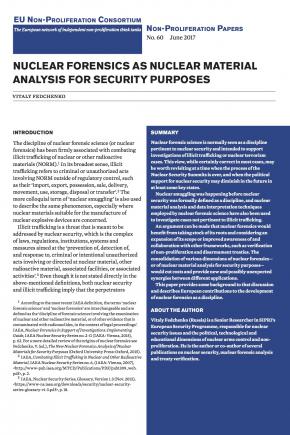Nuclear Forensics as Nuclear Material Analysis for Security Purposes
Nuclear forensic science is normally seen as a discipline pertinent to nuclear security and intended to support investigations of illicit tracking or nuclear terrorism cases. This view, while certainly correct in most cases, may be worth revisiting at a time when the process of the Nuclear Security Summits is over, and when the political support for nuclear security may diminish in the future in at least some key states.
Nuclear smuggling was happening before nuclear security was formally defined as a discipline, and nuclear material analysis and data interpretation techniques employed by nuclear forensic science have also been used to investigate cases not pertinent to illicit tracking.
An argument can be made that nuclear forensics would benefit from taking stock of its roots and considering an expansion of its scope or improved awareness of and collaboration with other frameworks, such as verification of non-proliferation and disarmament treaties. The consolidation of various dimensions of nuclear forensics—or of nuclear material analysis for security purposes—would cut costs and provide new and possibly unexpected synergies between different applications.
This paper provides some background to that discussion and describes European contributions to the development of nuclear forensics as a discipline.

